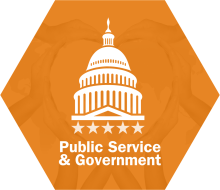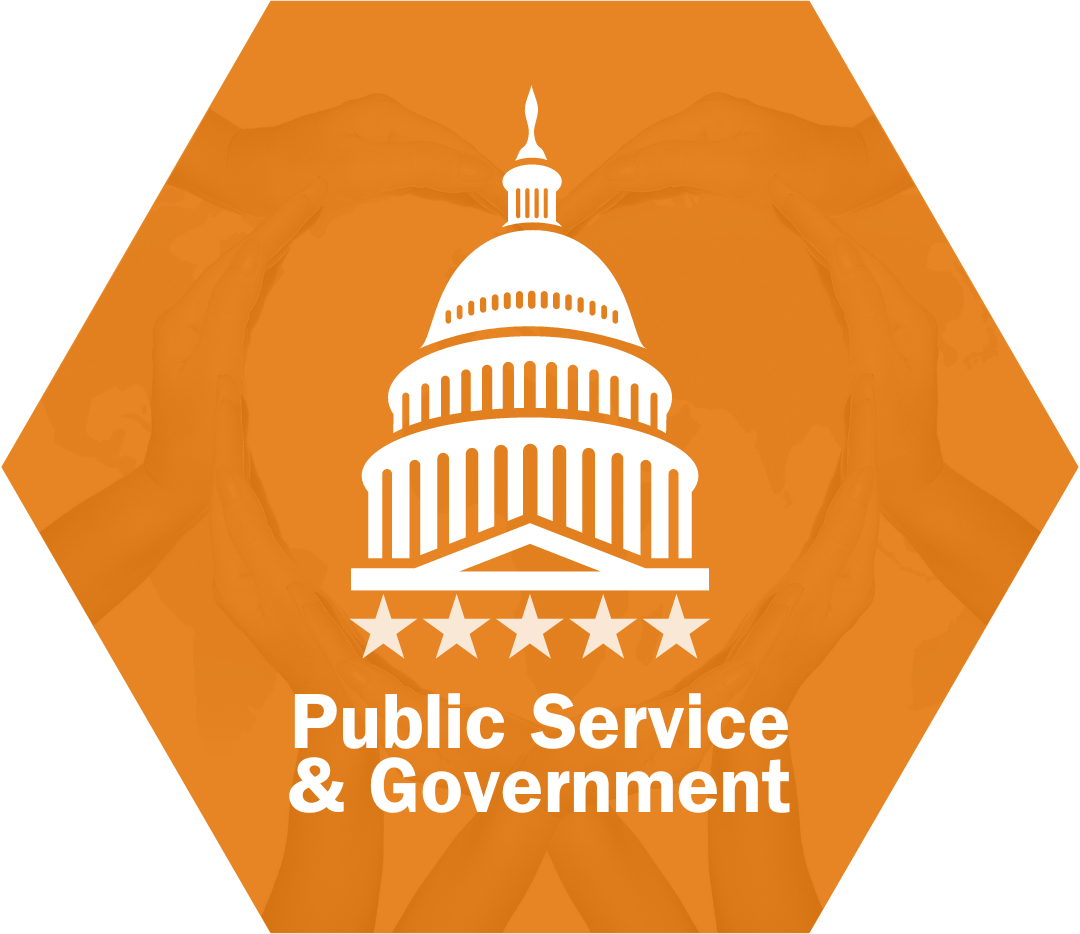
What is it like working on a campaign? How do you start influencing policy and trying to make a difference in your community? Politics is a fast paced, adrenaline filled industry. If you’re interested in getting into politics, you may be thinking about how to get involved.
Work Environments
- Think Tanks (for more info on think tanks, see information below)
- Capitol Hill
- Political Campaigns
- Lobbying/Government Relations Firms
- Private Foundations (IE The Commonwealth Fund, Bill and Melinda Gates Foundation, MacArthur Foundation)
Think Tanks
- What are think tanks?
-
Think tanks are research institutes that engage in influencing public policy about the economy, education, the environment, military analysis, technology, international relations and a variety of other fields. There are nearly 6,545 think tanks operating worldwide, and they’re usually run by anywhere between 5 to 40 or more people who are passionate about making a change in the modern political sphere, usually by creating innovative ideas and conducting research to solve current problems in government. Because think tanks advocate for current “hot take” policy issues, they usually identify with a particular party on the political spectrum such as left, right, green, or liberal. As far as where the money for think tanks come from, most are funded through private philanthropists or endowments, with a few receiving grants from universities or the government.
- What does working at a think tank look like?
-
There are a variety of positions people can hold when they work in think tanks, but the most common job is being an analyst. Analysts are often involved in the part of the research process that determines what proposals the think tank should consider taking on and the benefits of doing so. Analysts try to simplify data so that experts can understand the existing problem and potential solution.
Once you move up in the think tank sphere, you can often work as a project director who decides on what analyst ideas should be adopted, present such findings to the press and public through lectures, and meet with important government decision-makers. If neither of these positions sounds interesting to you, keep an open mind! There are plenty of other ways you can work in a think tank- ask about them in your interview!
- How to be a successful contributor to a think tank
-
To prepare for being a successful contributor in a think tank, you should practice public speaking or communication, have developed writing and research skills, be open to teamwork, and be passionate about public policy and current affairs.
Major and degree wise, most think tanks require novice staff to have at least a bachelor’s degree. As you move higher up to senior positions, you will need a master’s or PhD with some experience working in government, higher education, or even business.
If you don’t have much research experience, summer or semester internships are a great way to get exposed to how think tanks work so you can start networking with people in the field. Short internships usually consist of doing a little research and then administrative work so that you can have some knowledge about every task.
- What impact will you have working in a think tank?
-
You can gain a lot from surrounding yourself with dedicated, passionate people. You’ll build your personal credibility and gain transferable skills useful for any job. In addition to talking with co-workers, you’ll often be jumping between different social circles with politicians, journalists, and others who influence government policy.
- What does the pay look like?
-
It depends on each think tank and position level, but mid-level position holders and analysts earn between $50,000 to $80,000. Junior analysts, professional scholars, and staffers at think tanks make between $35,000 and $50,000 annually. Senior analysts are typically paid $80,000 to $200,000. Keep in mind that every think tank is different though, so these numbers are bound to change.
- Tips from the Career Center
-
Whether you are looking to start building experience in this sector or already have some to market, tailoring your resume is crucial. Potential employers want to see that you’re passionate and capable of thriving in fast-moving environments.
In your resume, make sure you highlight relevant coursework to the specific think tank field you’re entering. You also want to pay special attention to how you describe each experience you have on your resume by mentioning the transferable skills you’ve gained, such as initiative, creativity, marketing knowledge, or leadership.
Stop by the Career Center’s drop-in hours for more advice. A counselor or Career Peer Educator can help you get your resume started, give you some interview tips, and refer you to all of the resources we offer.
- Examples of think tanks
-
- The Brookings Institution
- Center for Strategic and International Studies
- Carnegie Endowment for International Peace
- Heritage Foundation
- Peterson Institute for International Economics
- Urban Institute
- Wilson Center, FKA Wilson International Center for Scholars
- Center for American Progress (CAP)
- Atlantic Council
- RAND Corporation
- Hudson Institute
- Council on Foreign Relations
- Belfer Center for Science and International Affairs
- Cato Institute
- Center for a New American Security
- American Enterprise Institute (AEI)
- Global Go to Think Tank Index
-
The Global Go to Think Tank Index includes a list of 107 U.S. think tanks as well as rankings for international think tanks by region.
- Additional think tank resources
Job Types
Positions within this field work to create policy, elect and advise officials, and advocate for various political issues through public and private organizations. Some examples of jobs include:
- Legislative Aid/Correspondent
- Policy Analyst
- Research Assistant
- Lobbyist/Government Relations Specialist
- Political Consultant
- Campaign Manager
Relevant Skills
- Writing
-
Developing strong writing skills cannot be emphasized enough for success in this industry. Flex your writing skills by seeking diverse opportunities to work on projects in research, policy, fiction, media, etc.
- Research
-
Learn how to conduct effective research relevant to a particular issue, candidate, or client including what databases and resources to use to find pertinent information. Additionally, look for opportunities to present your findings in a clear and concise manner.
- Customer Service
-
One of the primary responsibilities in politics is meeting and communicating with constituents. Any customer service experience will help prepare you well for Capitol Hill.
- Networking
-
Many opportunities for advancement in these areas arise through personal contacts and "who you know." Developing a comfort with informational interviewing will be immensely helpful for you in exploring these professions.
Alumni Spotlight
Executive Director, The Sorensen Institute for Political Leadership
Tom is the Executive Director of The Sorensen Institute for Political Leadership at the University of Virginia. Located in Charlottesville, VA, Tom and his team create and execute a variety of programs to teach ethics, bipartisanship, and public policy to young leaders in high school, college, and early on in their careers on the campaign trail. Major: English and History (Bachelor), JD (Doctorate)


